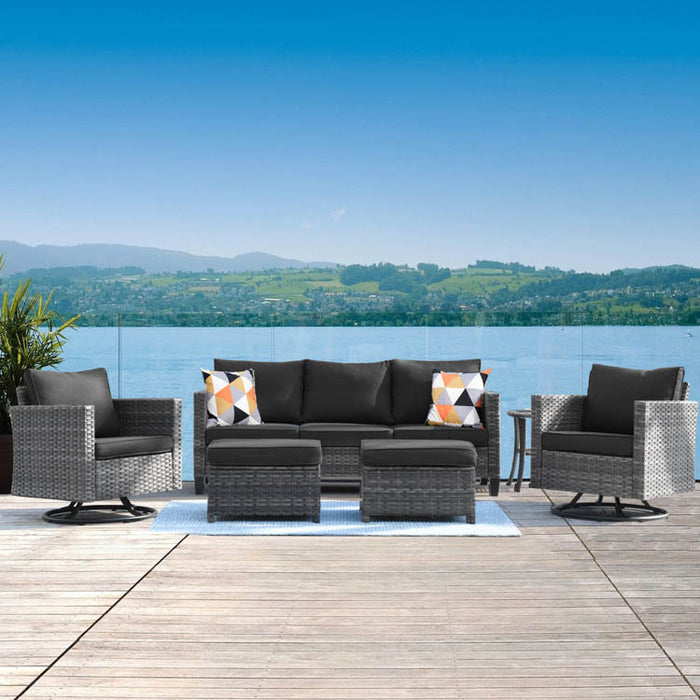Choosing the right materials for your patio furniture is crucial in ensuring its durability, comfort, and aesthetic appeal. With a wide range of options available, it can be overwhelming to make a decision. In this article, we will explore different patio furniture materials and help you determine which one is right for you.

1. Wood
Wood is a classic choice for patio furniture due to its natural beauty and timeless appeal. It can be crafted from various types of wood, such as teak, cedar, or eucalyptus. Teak is highly regarded for its durability and resistance to weather conditions, making it a popular choice for outdoor furniture. Cedar and eucalyptus are also excellent options, known for their natural resistance to decay and insects.
One of the advantages of wood patio furniture is its ability to blend seamlessly with nature, creating a warm and inviting outdoor space. However, it requires regular maintenance, including staining or sealing, to protect it from the elements and extend its lifespan.
2. Metal
Metal patio furniture offers a sleek and modern look, perfect for contemporary outdoor spaces. Aluminum and wrought iron are two common types of metal used in patio furniture. Aluminum is lightweight, rust-resistant, and easy to maintain, making it a popular choice for many homeowners. Wrought iron, on the other hand, is known for its durability and sturdiness, but it requires regular maintenance to prevent rust.
When choosing metal patio furniture, consider the climate in your area. If you live in a coastal region with high humidity, aluminum furniture is a better option as it is more resistant to corrosion caused by saltwater. On the other hand, wrought iron may be a better choice for dry climates.
3. Wicker
Wicker patio furniture is made from woven synthetic fibers, such as resin or polyethylene. It offers a classic and elegant look, reminiscent of traditional outdoor furniture. Synthetic wicker is highly durable and resistant to weather conditions, making it suitable for outdoor use. It is also lightweight and easy to move around, allowing you to rearrange your patio furniture as needed.
One of the advantages of wicker patio furniture is its versatility. It can be styled to fit various design aesthetics, from coastal to rustic. Additionally, it requires minimal maintenance, usually limited to occasional cleaning with mild soap and water.
4. Plastic
Plastic patio furniture is an affordable and low-maintenance option for outdoor spaces. It is lightweight, easy to clean, and resistant to weather conditions. Plastic furniture is available in a wide range of colors and styles, allowing you to find the perfect match for your patio.
While plastic patio furniture may not offer the same level of elegance as other materials, it is a practical choice for those on a budget or for spaces that require frequent furniture rearrangement. It is also a popular choice for families with young children, as it is less likely to cause injuries.
When choosing patio furniture materials, consider your personal preferences, budget, and the climate in your area. Each material has its own advantages and disadvantages, so it's important to weigh them carefully. By selecting the right patio furniture materials, you can create a comfortable and inviting outdoor space that will last for years to come.
Conclusion
In conclusion, choosing the right patio furniture materials is essential for creating a functional and visually appealing outdoor space. Whether you prefer the natural beauty of wood, the sleekness of metal, the elegance of wicker, or the affordability of plastic, there is a material that suits your needs. Remember to consider factors such as durability, maintenance requirements, and climate suitability when making your decision.
For more information on patio furniture materials, you can visit the following credible sites:






